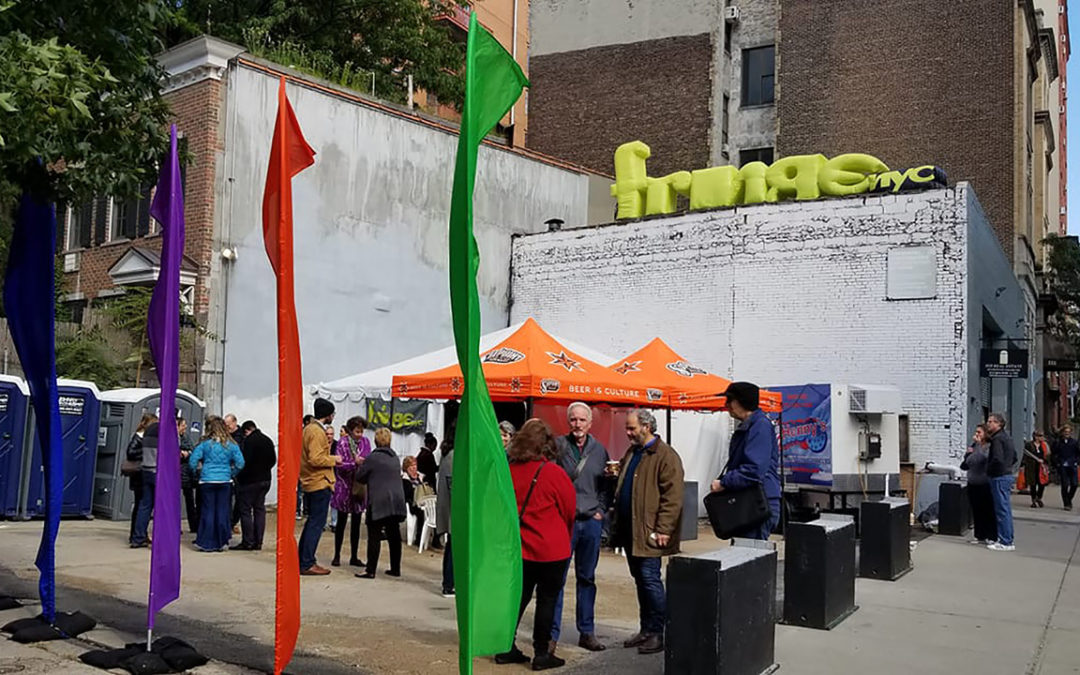In the West Village of New York City, on October 13th at 7:00 in the evening, ONAJE opened as my first professionally produced play. I sat in the back, in a balcony with lights and sound equipment around me and watched the audience file in and take their seats. I gave the appearance of being calm but I was terrified.
I have been to opening nights for nine of my prior plays in the little theaters of Baltimore and I have learned there is an immediate courtship: the call offered by the actors at the beginning of the play and the audience’s response. You can feel it. It is confirmed with the first laugh but the commitment can also be felt in the early silence.
As the play unfolds, from the back of the theater, you can watch for physical movement, restless disengagement as evidence of the loss of commitment to a play. It can become contagious in the dead silence and then nothing can resurrect the play. Once you lose them, there is no getting them back.
My friends, the composer Christian De Gré and our producer Susan Conover Marinello, and I had been fortunate to have Tom Viertel as our dinner guest three weeks before we opened. Based on years of experience as a renowned Broadway producer, the founder of the Commercial Theater Institute, and director of the O’Neill, he told us a “no-intermission play cannot run more than 93 minutes” without the high risk it will lose its audience. There was no doubt in his voice. We took his advice. We knew he was right. I went to work cutting lines and shaping the script with four script reductions.
Opening night at FringeNYC was to be judged by a sold-out crowd as they rendered their verdict first in the dance of commitment as the play got underway and then after 90 minutes by the way they moved in their seats.
For me, knowing every line and the slightest modulations in an actor’s voice, the experience was, of course, different than an audience seeing it for the first time. The audience will be engaged until they’re not. The only measurement that is credible is how the theater feels and how the shadows in the seats sit engaged or start to move. That is the only language.
I could feel this audience’s early engagement and commitment to the play and surprisingly when I did, I started to daydream about the genesis of this project:
I am the oldest son. The oldest son of the oldest son of the oldest son, all of whom have been well-respected and distinguished lawyers, professors, and public servants. Although my father supported my love of storytelling, bringing me hand puppets from his travels and building me a little puppet theater so I could perform for my seventh- and eighth-grade classmates, there was no doubt my next step was to carry on the family profession of law.
While I dreamed of writing plays, I grew to love being a business trial lawyer. Before my father died several years ago, while I took care of him during his final years, he quite casually one afternoon looked at me and said, “I am very proud of what you have accomplished. I could never have started a law firm and succeeded in the way you have.”
Almost accidentally, he had released me to change my avocation to my profession. I soon retired and made a full commitment to become a professional playwright.
Opening night at FringeNYC was for me, unconsciously, like a flock of carrier pigeons released well over fifty years ago coming in to roost.
The last seven pages of the play runs 12 minutes to conclusion. I leaned over the rail and listened for the quality of the silence and looked down on an audience that did not move. They were engaged after 96 minutes, three minutes longer than Tom’s ultimatum. We had pushed the envelope but still survived.
The lights came down and there was a moment of silence, and as the actors came to their curtain call they were met by increasing and sustained applause. As the theater emptied out I saw many of my friends, some of whom had traveled from as far as California and Canada, as they walked to the stairs to exit past my door from the balcony.
I was not conscious at the time, even after I was welcomed by the audience and my friends, that like the characters I had written in ONAJE, after a long journey, I had finally come home.

